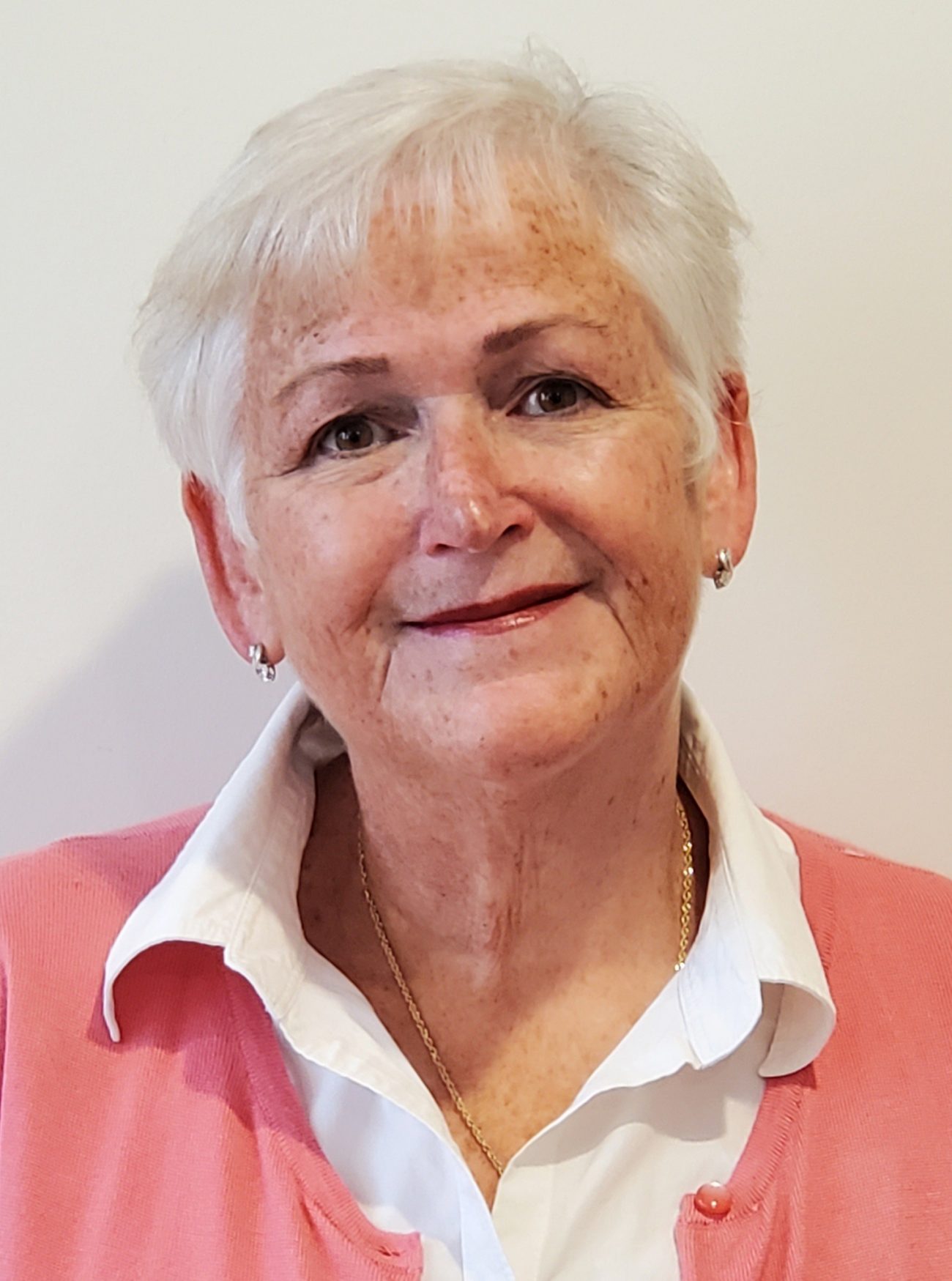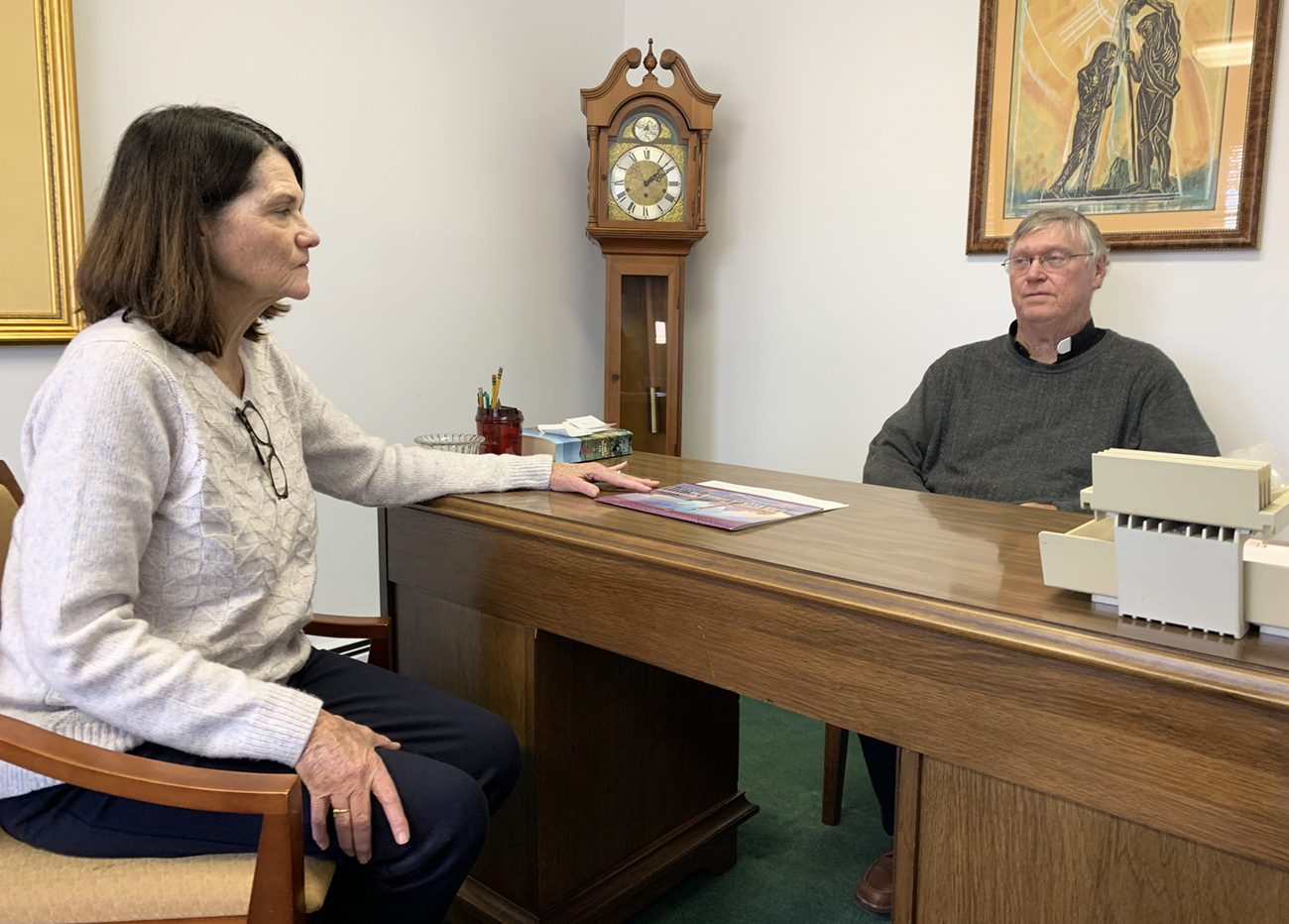On a given weekday, Barbara Daly might find herself filling in as a catechist, negotiating a construction contract, recruiting volunteers or helping a bereaved family plan a funeral.
“It’s hard to wrap a blanket around this job,” admits Daly, a pastoral associate at St. Anthony of Padua Parish in Ambler.
From coordinating Advent concerts and charitable outreach to setting up tables for events and taking out the trash, “whatever it is that has to be done, we do,” said Tricia Cellucci, director of parish services at St. Patrick Parish in Malvern.
[hotblock]
Fran Williams, a fellow director of parish services for Christ the King Parish in Philadelphia, agreed.
“I’m here for what’s needed at the time, and it’s always like, ‘What’s next?’” she said. “We keep the plates spinning.”
All three women, members of the parishes for which they work, have embraced an emerging role in lay pastoral leadership — one that’s “becoming an integral part of parish life,” said Evelyn Brannan Tarpey, associate for pastoral planning in the Archdiocese of Philadelphia’s Office for Parish Service and Support.
Called, gifted and emerging
As of 2020, 74 (or 35%) of the Archdiocese’s 214 parishes reported having a parish services director or pastoral associate, according to Tarpey’s colleague Katherine Vaughan, archdiocesan pastoral planning systems analyst.
The position’s key responsibilities are “fluid,” said Tarpey, and are “defined by the mission and vision of the parish.”
As a result, the role doesn’t lend itself to a standard job description, which is “as broad as the pastor defines it,” she said.

Barbara Daly, pastoral associate at St. Anthony of Padua Parish in Ambler, said her work enables her to fulfill her mission as a lay person.
Tasks are a blend of the hands-on and the holy, with a lot of the ad-hoc mixed in, said Daly.
“You do everything,” she said. “But underlying everything you do, whether you’re talking to a contractor or dealing with the copier repairman, it has to stem from your understanding of ministry.”
Despite some occasional overlap in assignments, parish services directors can be clearly differentiated from parish business managers, who typically concentrate on financial, facilities management and human resource concerns, rather than ministerial efforts.
Parish services directors are also distinct from parish directors or parish life coordinators, whom a diocesan bishop can appoint to “exercise the pastoral care of a parish” due to a lack of priests, as canon law (CIC 517.2) specifies. Such leaders must work under the direction of a priest, who provides for the congregation’s sacramental life.
Researchers at Cardinal Stritch University’s Collaborative Parish Leadership Project estimate about 2% of Catholic parishes in the U.S. are led by parish life coordinators. Those roles currently are not present in the Philadelphia Archdiocese.
National statistics for parish services directors aren’t as readily available, but demand for such individuals is “growing,” said Jesuit Father Thomas Gaunt, executive director of the Center for Applied Research in the Apostolate (CARA).
With many parishes becoming “larger and more complex” entities, the church “needs folks who are on top of that,” said Father Gaunt.
Tarpey cited safe environment protocols, mandated in the early 2000s in response to clerical sexual abuse scandals, as key to the creation of director of parish services positions within the Philadelphia Archdiocese. Faced with more paperwork and fewer clergy, several local pastors began recruiting lay staff – many of whom already had teaching or volunteer experience – to manage safe environment training and recordkeeping.
[hotblock2]
Clerical shortages in general have helped accelerate the trend toward greater lay leadership – but there’s also a positive driver at work, said Matthew Manion, faculty director of Villanova University’s Center for Church Management.
“It’s part of the emergence of a new vocation of lay ecclesial ministry,” said Manion.
The Second Vatican Council explicitly affirmed the role of the laity in the church, and in 1980 the U.S. bishops issued “Called and Gifted: The American Catholic Laity” to further reflect on the council’s insights.
In that document, the bishops described “ecclesial ministers,” or “lay persons who have prepared for professional ministry in the Church,” as a “new development” and “a gift to the Church.”
The bishops also acknowledged that such roles at the time were “not yet clearly spelled out,” with many “practical difficulties” — including just wages and benefits – remaining to be resolved as part of an overall “interrelated oneness of ministry.”
‘A love for Jesus, a heart for ministry’
Along with pay scales and job descriptions, qualifications for lay ministry positions are still evolving. Many archdiocesan parish services directors hold advanced degrees in theology; in addition, most have spent significant time as catechists, youth ministers, bereavement support leaders or social outreach volunteers.
Cellucci previously directed the former archdiocesan Office for Youth and Young Adults (now reconfigured as two ministries) and worked as a consultant for the Catholic Leadership Institute.
“I’ve always had a professional career in the church,” she said. “I am so fortunate.”
Williams, a former educator, said she had long been “active in parish life,” and her involvement led to her being invited to apply for the position at Christ the King some two decades ago.
Daly, who completed her graduate work at St. Charles Borromeo Seminary, was also tapped to join her parish’s staff, having volunteered to help seniors.

Tricia Cellucci, director of parish services at St. Patrick Parish in Malvern, said her goal is to help others “deepen their relationship with Christ.”
Organizational, communications and listening skills are vital to the position – but above all, parish services directors should possess “a love for Jesus and the church, and a heart for ministry,” said Manion. “That trumps every other credential, or it should.”
Helping others deepen their relationship with Christ
Through their day-to-day efforts, parish services directors enable clergy to focus on meeting their parishioners’ spiritual needs.
“There are some things I’m able to help take the lead on,” said Cellucci. “Previously, all of that would fall into (the) lap” of Father Chris Redcay, pastor of St. Patrick’s.
Daly said her pastor, Msgr. Stephen McHenry, has “been very happy to have a lot of administrative things handled,” so that he has “the ability to do what he does best: dealing with the people, being a minister to the people.”
Father James Callahan, pastor of Christ the King Parish, described Williams as a “great asset.”
“If she’s involved in it, I don’t have to worry at all,” he said. “She’s very capable, and (without her) I couldn’t do anywhere near the amount of things I’m doing.”
Yet parish services directors said they aren’t seeking any kind of pastoral power-sharing: in fact, quite the opposite.
“I do not feel that I am a ‘priest light,’” said Daly. “I’m a lay person, living a lay person life and completely fulfilling my mission as a lay person.”
And they work hard to encourage other faithful to do the same, they said.
“My hope and my goal is that I provide another way for someone to deepen their relationship with Christ,” said Cellucci. “This is an opportunity to serve and to be able to play a small role in trying to help our parish grow, so that more individuals come to know how loved they are by God.”
PREVIOUS: Local pro-lifers doing ‘amazing things’ for life at all stages
NEXT: Prayer service celebrating Dr. King set for Jan. 17




Share this story